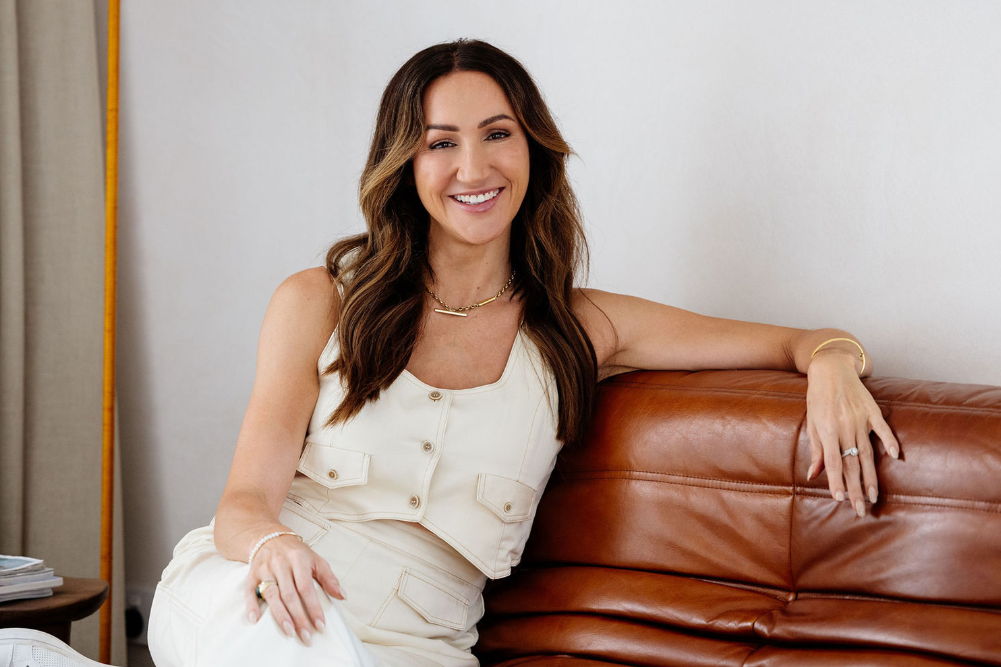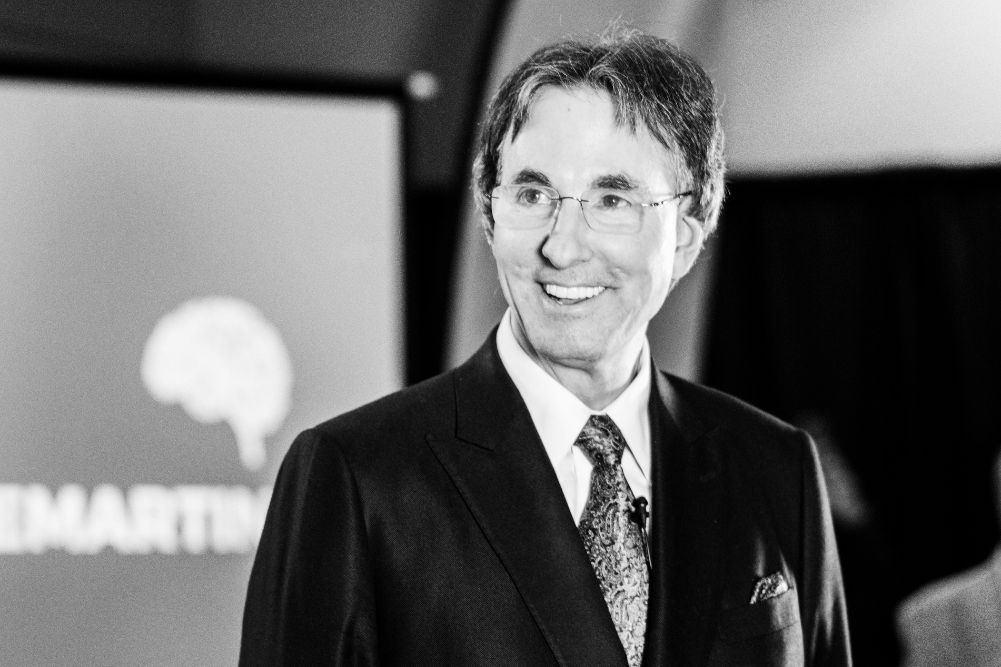We sit down with Pauline Nguyen, who offers us all a beacon of hope
We sit down with Pauline Nguyen, who offers us all a beacon of hope.
“Looking back, I don’t feel like a victim at all.” As an opening line for the story of award-winning restaurateur, filmmaker, boat person, writer and abuse survivor Pauline Nguyen, there couldn’t be any better. Once you start to understand the challenges she has overcome, and the enormous success she has managed to create, you’ll understand why. Nguyen doesn’t do victim. Instead, she takes some of the most confronting parts of the human experience, turns them into opportunities and then takes it on the road to help others do the same.
As the co-owner of the most awarded Vietnamese restaurant in the world (which she runs with her brother Luke and husband, chef Mark Jensen), Nguyen has proved that grit and determination can turn any start in life around. As one part of Sydney restaurant Red Lantern, she has won numerous business awards.
It was the release, however, of her very personal family memoir Secrets of the Red Lantern more than 10 years ago — documenting not only some of the family recipes that had made Red Lantern the roaring success it is, but also the abuse and tragedy of her family’s escape and early years in North Sydney — that marked her as a speaker and inspirational leader. She is a woman determined to share her message.
The early lessons
As you speak to Nguyen, you get the instant impression that this is a woman who is fiercely determined to live her life with purpose. She speaks about her early life — and the trauma and abuse that entails — with such awareness, you know she’s spent years reflecting on what it all meant. She’s clear on the lessons. She knows why she’s here.
“I was brought up in a very, very abusive, violent household,” she relates. “My father suffered terribly from post-traumatic stress disorder. He was a lieutenant in the Vietnam War and, when I was four years old, he decided to escape Vietnam with us all. We spent nine days out at sea and ended up in Thailand in a refugee camp, where we spent a very difficult year.”
Arriving in Australia and setting up his family in the Sydney suburb of Cabramatta, Nguyen’s father struggled to start life again. While the abuse and anger she and her brothers suffered at the hands of her father are littered throughout her memoir, it’s always done so with a sense of compassion. It was terrifying, but Nguyen now knows why it happened. And she wants us to know that her father was a victim of circumstance — and his own thoughts.
“Fear seeped through every window, rose up from each shiny floorboard and spilled through the dead cracks in our walls. It hovered over our beds while we were sleeping.”
“I’ve spoken to a lot of immigrants now,” she says, “and it’s hard for people to understand just how difficult it is when someone comes to a new country having experienced all that trauma, and then to come here with nothing. No house, no job, no money. My father was like a faulty pressure cooker: he had nowhere to dump his anger and so he dumped it on us kids and his wife.”
He also demanded his children start work in the family restaurant. Nguyen was seven when she started, her brother Lewis was six and her younger brother Luke was only three. “There was so much stress on us to work for the family and to do all the things an adult person would do. And then on top of that we had to get good grades as well. We worked at the restaurant seven days a week before and after school, but we also had to go to maths school, Vietnamese school, cooking school, debating and martial arts. Being a high achiever was literally beaten into us.”
It was a life ruled by fear. Nguyen describes in her book, “I cannot remember any time when fear did not lurk over my shoulder. Fear seeped through every window, rose up from each shiny floorboard and spilled through the dead cracks in our walls. It hovered over our beds while we were sleeping.” And so, desperate to get away from it all, she ran away from home.
A new beginning
It’s important to remember the area of Sydney we’re talking about here: Cabramatta in the early 1990s was rife with refugee families struggling to adjust to their new home. Like Nguyen’s family, the parents would be working seven days a week, but many of the younger generation were being lured into a life of crime. Drugs, gangs, violence: despite their parents’ determination to start a new life in Australia, many of the kids Nguyen’s age chose a very different life.
“I was determined not to end up like that,” she says. “My father was always saying that we would follow that path if we didn’t obey his rules and I was determined not to prove him right. I didn’t want to become a drug addict; I didn’t want to become a loser like a lot of the children who grew up around my area. And so I left and put myself through university.”
Living away from home and needing to make ends meet while studying, Nguyen started working in the hospitality industry. She’d worked tables and the kitchen since she was seven, so it was an obvious way to bring in some money at the time. Terrified she would be “found” and dragged back home to her father again, Nguyen eventually travelled to Europe where, she says, she finally began to feel the freedom and possibility of life without fear.
On her return to Australia, she eventually opened Red Lantern with her brother Luke (who now has his own SBS cooking and travel show and numerous bestselling cookbooks) and her husband. The trio scraped together the money to start the restaurant, while friends and family helped paint the restaurant its signature red, and the wines were all bought at auction. Determination and grit again got them through.
“Looking back, if it hadn’t been for all of those things, I wouldn’t be the person I am today,” Nguyen says. “I learnt resilience, I learnt independence, I learnt courage and grit. Grit is so important. I look back and I think that I’m the lucky beneficiary of all those things that happened in my childhood — it’s what made me get here.”
Beyond food
But life was to be about more than recognition for her family’s restaurant. After the birth of her daughter, Nguyen felt pulled to write the story of her family’s history and share it with the world. Parenthood had made her want to understand what had caused so much pain in her own childhood — and, in the writing of it, she uncovered her passion for challenging the status quo.
Now an in-demand international speaker, Nguyen is regularly invited to speak to hundreds of business people about success. She is, however, determined to get them to think beyond profit and loss. “Speaking is what I was put on this earth to do: to make a massive impact to a lot of people in a short period of time,” she shares. “I know I’m here to help people disrupt the habit of being themselves, to find their authentic voice and to adopt new ways of thinking and new ways of being.
“We can’t just accept what we are handed. I learnt that very early on — I was determined to change the pattern of thinking and the definition of success that my father taught me. And this is what I want to do. It is so important to be proactive and to not stand by injustice and just let things happen. It is important to use our talents to speak our truth, to let go of the old, to release what no longer serves us, to reject the bullshit rules of society and to live the life that we truly desire. To live a life by design and not by default.
“I believe that humanity has been asleep for too long; we’ve been living in a foggy bubble of illusion. There is no doubt that the collective consciousness is rising.”
“I believe that humanity has been asleep for too long; we’ve been living in a foggy bubble of illusion. There is no doubt that the collective consciousness is rising. There are so many of us now who are living by example and disrupting the status quo and questioning the beliefs that no longer make sense to us, that no longer serve us. Questioning the beliefs that cause us pain.”
Although she says her focus rarely strays from running Red Lantern and her speaking career, Nguyen says she is most committed to being in constant “creation and collaboration”.
“A lot of us get stuck in maintenance mode and then we forget that we need to continually fill up the funnel of creativity. For me, my happiness is in the place where I continue to create. I am always looking to the next thing: ‘OK, that project’s done — awesome. Wow, I won an award — that’s amazing. What’s next?’
“It’s not about perfectionism or outward success. This is how I coach my team at Red Lantern and how I coach my children; it’s not about being perfect. When you’re a perfectionist, you will always suffer. It’s about excellence. It’s about compassion. It’s about authenticity and being true. It’s not about success in terms of money or awards — it’s about asking what is going to give me the most peace and what is going to give me the least suffering.”
And, in all that she does, it’s about handing that gift back to others.
Breaking the cycle
When asked what the biggest turning point in Nguyen’s life was, she immediately talks about becoming a parent herself. After such a traumatic childhood, it was the process of becoming a mother that really cemented her commitment to self-enquiry and growth.
“I hold my early life as an anti-model of what I don’t want in life,” she says. “It is the example of what not to do. I’ve been on a mission to not be that confused angry adult I saw growing up. And, when I become a mother, that determination grew even stronger. I was determined that the cycle ended with me. I never wanted to pass my anger to the next generation.”
Nguyen says she became obsessed with learning how to be a “better thinker”. Showing that same grit that saw her leave her father’s home, she applied that resilience to her own thought patterns and learnt how to consciously live each moment of life.
“Self-love changed my world. I had to learn how to love myself. I also became totally obsessed with being my thought patterns. The greatest cause of disease is poor thinking and poor energy, and I knew I had to train myself to be a better thinker and to be kinder to myself. The kinder we are to ourselves and the more we love ourselves, the more compassion we can have for others. It’s a cycle. The more we love ourselves, the more we love our children. The more our children know that we love them, the more independent they are, the more they can love themselves, the more they can love others, and so it continues.
“If I’m fighting with a friend, or if there’s a conflict with anyone, I will choose the thoughts that will create more joy. For me, the goal is always to bring less suffering, to bring more peacefulness and, most of all, to bring more joy.”
And what of her relationship with her father?
Nguyen tells the story of turning up at her parents’ home after her father had read the finished manuscript of her book. After unsuccessfully trying to broach the subject of the book numerous times, Nguyen finally asked her father one final time how he felt about the book right before she left.
“This time he said to me, ‘Do you know why Buddha sits on a lotus flower? There is nothing more beautiful than a lotus flower. It grows out of mud and watery chaos yet remains so pure and unpolluted by it. And then he said, ‘My children are lotus flowers; you grew out of the aftermath of war, you grew out of Cabramatta during its murkiest time and, most importantly, you grew out of me. I am mud, I am dirt.’”
“It’s not about success in terms of money or awards; it’s about asking what is going to give me the most peace and what is going to give me the least suffering.”
It’s a very apt description of Nguyen’s work in the world. “While it was a very difficult journey growing up, I look back and my parents were my biggest teachers in so many ways and that whole experience was a wonderful way to learn what not to be in life.
“Connection is why we are here,” she says again. “Connection is what gives our lives meaning and purpose. Pablo Picasso says that ‘the meaning of life is to find your gift and the purpose of life is to give it away’. And that is what drives me.”








